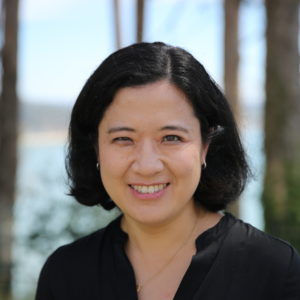Stanford Law Clinic Adds #MeToo-Inspired and Other New Content to Nonprofit Legal Documents Website

Last year, Stanford Law’s Organizations and Transactions Clinic launched a website offering free access to hundreds of sample legal documents for attorneys who represent nonprofit organizations. The clinic recently updated the site with new materials, including contracts and governance materials revised in light of the #MeToo movement.
“Model contracts and other legal documents designed for nonprofits are hard to find, especially materials relating to programs and other nonprofit-specific activities,” said Stanford Law Professor Jay A. Mitchell, director of the clinic. “This site tries to help address that resource gap by making a wide range of documents available to lawyers doing pro bono and other work for nonprofits.”
Offering Nonprofit Lawyers a Helping Hand
When the free website first launched in August 2017, it contained roughly 200 documents relating to a variety of topics, such as corporate governance, programmatic and earned income activities, fiscal sponsorship, resource sharing, affiliation, and other matters unique to nonprofits. Clinic students and instructors developed all the forms in the course of representing clients. Since launch, the clinic has added new documents, including contracts for arts programs and for fundraising collaborations with businesses, and updated governance and other materials based on input from clients and students in the clinic.
“Having access to these legal templates can help pro bono lawyers avoid reinventing the wheel by leveraging the work done by our students for our clinic clients,” said Mitchell. “In addition, the experience our students gain by working with clients and creating these documents is invaluable for when they enter the work world. And, making this legal work available through the website helps us carry out our public interest mission.”
Keeping Up with Current Developments

The document updates include changes intended to take into account considerations brought to light by the #MeToo movement. For example, the clinic revised vendor, collaborator and other contracts to set out clear terms regarding workplace conduct, and added reporting provisions and termination rights relating to harassment. These terms call out and bar harassing and discriminatory conduct, encourage vendors and collaborators to report incidents, and entitle the client to terminate the contract immediately if other party engages or is alleged to have engaged in conduct involving harassment or discrimination.
In the governance area, the clinic in its board agenda development process document added more extensive recommendations regarding board review of workplace environment, tone and behavior at the top, leadership and staff demographics, and internal reporting mechanisms.

Legal developments also drove document updates, including revisions to a variety of contracts in light of a 2018 California Supreme Court case setting out new standards for treating individual service providers as employees or independent contractors.
The website has seen steady growth with 11.5K visits/events over the last year. “We’re pleased with what we’ve seen in terms of awareness and activity and grateful for the positive feedback we get from users that will help us continue to improve the site,” said Mitchell’s colleague Michelle Sonu, Lecturer in Law and Clinical Supervising Attorney.
About the Organizations and Transactions Clinic
The Organizations and Transactions Clinic is part of the Mills Legal Clinic at Stanford Law. The clinic provides free corporate legal services to established Northern California and other nonprofit organizations. It is designed to help Stanford Law students learn about corporate practice and develop as lawyers and professionals.
About Stanford Law School
Stanford Law School is one of the nation’s leading institutions for legal scholarship and education. Its alumni are among the most influential decision makers in law, politics, business, and high technology. Faculty members argue before the Supreme Court, testify before Congress, produce outstanding legal scholarship and empirical analysis, and contribute regularly to the nation’s press as legal and policy experts. Stanford Law School has established a model for legal education that provides rigorous interdisciplinary training, hands-on experience, global perspective and focus on public service, spearheading a movement for change.
